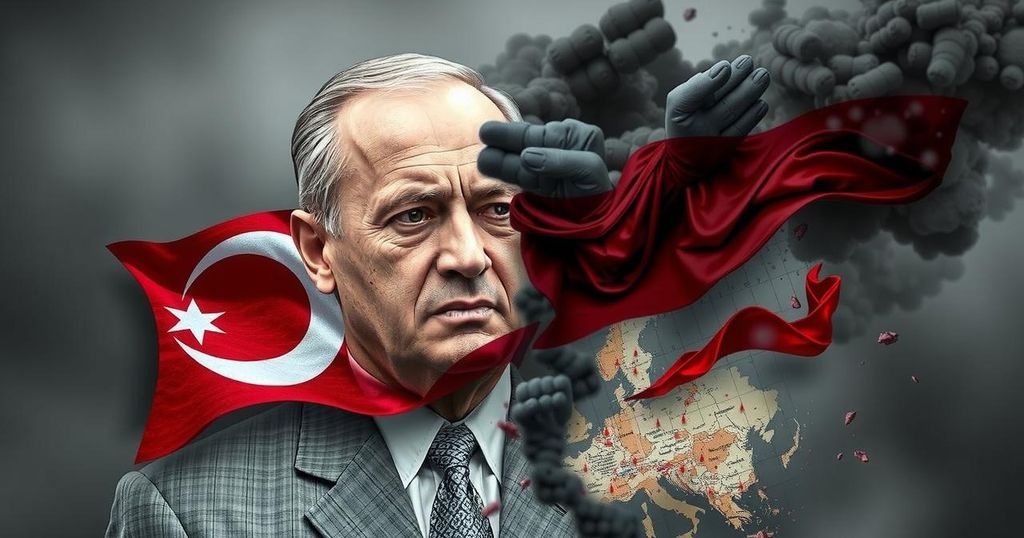The Collapse of Assad: A Significant Blow to Russia’s Global Prestige

Bashar al-Assad’s regime has collapsed, resulting in significant repercussions for Russia’s international standing. The Kremlin, which supported Assad militarily, now faces the challenge of asserting its influence as it announces Assad’s asylum in Moscow. This turn of events raises concerns about the future of Russian military bases in Syria and underscores potential domestic distractions as Russia navigates the fallout from this dramatic shift.
In a stunning turn of events, the regime of Syrian President Bashar al-Assad has collapsed, a development that profoundly impacts Russia’s stature on the global stage. For nearly a decade, Russia’s military interventions have been vital in sustaining Assad’s governance. As reports indicate, Assad has fled to Moscow, where he has been granted asylum on humanitarian grounds, marking a significant blow to Moscow’s ambitions in the region.
The Russian government has expressed extreme concern over the rapid developments in Syria, highlighting their inability to intervene effectively as the situation deteriorated. This fall from power undermines the Kremlin’s efforts to establish itself as a significant global power through its military operations in Syria, initially perceived as a triumph for President Vladimir Putin. The fall of Assad may have lasting repercussions for Russia’s strategic interests, especially concerning its military bases established in Syria, which have been put on high alert amid uncertainty about their future.
Moreover, Russian state media has begun to shift blame toward the Syrian army for the regime’s collapse, citing a lack of resistance against opposing forces. The focus on the crisis highlights the Kremlin’s efforts to distract public attention from potential failures linked to their military investment in Syria, instead emphasizing the necessity of prioritizing Russia’s domestic security. Despite Russia’s substantial commitment to Assad, the current transition in Syria is being framed as an issue of lesser immediate concern for the Russian populace amid ongoing domestic challenges.
The geopolitical ramifications of the Syrian Civil War have attracted global attention, particularly regarding Russia’s military and diplomatic engagements in the region. Since its intervention in 2015, Russia has leveraged its support for Assad to enhance its stature and influence in the Middle East, marking a departure from its traditional sphere of influence in the post-Soviet states. The bases established in Hmeimim and Tartous symbolize Russia’s strategy to project power and engage in broader geopolitical maneuvers. However, the recent shifts in Syria’s power structure pose significant challenges to Moscow’s objectives and threaten its military foothold in the region.
In summary, the fall of Bashar al-Assad represents a significant setback for Russia, both in terms of geopolitical prestige and military strategy. The Kremlin’s extensive investment in Assad’s regime appears to have unraveled dramatically, exposing vulnerabilities in its approach. As Russia grapples with the implications of these events, the immediate future of its military bases in Syria and the broader regional dynamics remain uncertain, compelling reflections on its foreign policy direction.
Original Source: www.bbc.co.uk






